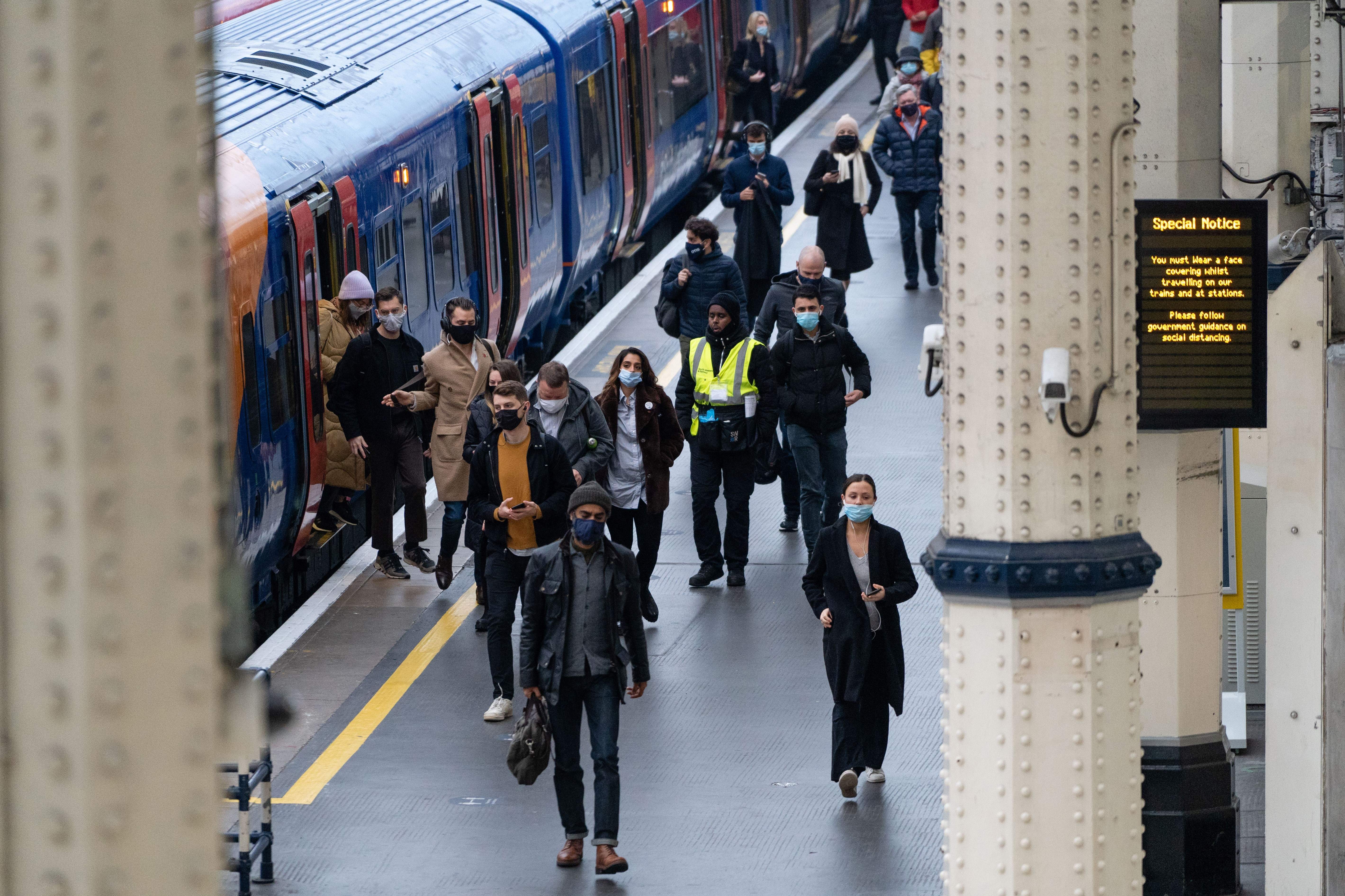Almost 60 per cent of office workers struggling to separate work and home life, research reveals
The results concluded that while 29 per cent have replaced their commute with a walk, 69 per cent aren’t doing much with their extra time

Your support helps us to tell the story
From reproductive rights to climate change to Big Tech, The Independent is on the ground when the story is developing. Whether it's investigating the financials of Elon Musk's pro-Trump PAC or producing our latest documentary, 'The A Word', which shines a light on the American women fighting for reproductive rights, we know how important it is to parse out the facts from the messaging.
At such a critical moment in US history, we need reporters on the ground. Your donation allows us to keep sending journalists to speak to both sides of the story.
The Independent is trusted by Americans across the entire political spectrum. And unlike many other quality news outlets, we choose not to lock Americans out of our reporting and analysis with paywalls. We believe quality journalism should be available to everyone, paid for by those who can afford it.
Your support makes all the difference.A survey of 2,000 UK adults who have been forced to work from home this year found the average person is saving 60 minutes a day due to the lack of travel to and from work.
However, the much-maligned commute acted as a buffer between work and home life, leaving 59 per cent struggling to switch off after their working day now.
And 42 per cent of those surveyed by insurer Vitality went as far as to say the lack of commute is having a negative effect on their physical health and wellbeing.
As a result, 58 per cent are even missing certain aspects of their trip to and from work, with being able to separate home and work the top reason.
Others miss the journey because it gave them time to drive in the car alone (25 per cent), take a break from friends, family and housemates (22 per cent), and exercise by walking and cycling to the station (19 per cent).
Following the findings, Vitality is encouraging Brits to have a ‘fake commute’, to spend at least 20 minutes in the morning before work or 20 minutes after work doing exercise, taking time to meditate or taking up a hobby to improve physical and mental health.
Neville Koopowitz, CEO of Vitality, said: "This year has been exceptional and changed our lives in many ways.
"In the first lockdown many of us found we had extra time in our day, taken back from the commute to work, which we were able to use constructively in some way.
“However, our research shows that more recently, likely affected by winter and the longer nights, that many of us have slipped into unhealthy habits, using this time to sleep in or work more, resulting in a struggle to keep boundaries between our working and home lives – which can lead to stress and poor mental health."
The study also found that while 29 per cent have replaced their commute with a walk, 69 per cent admitted they aren’t doing much with the extra time they now have.
Almost four in 10 (37 per cent) admitted they simply spend more time in bed.
And 40 per cent are now working longer hours, leaving 45 per cent feeling less happy due to increased stress.
As a result, the research, conducted by OnePoll for Vitality, found 67 per cent feel they need to improve their mental health and wellbeing this winter.
Claire O’Neill, head of clinician management at Vitality, has highlighted the top five things to do with the fake commute.
Meditate: Switch off for 20 minutes each morning or evening by doing a guided meditation with an app like Headspace – not only will this help you feel set up and ready for the day or able to unwind after work, it’ll help dispel any feelings of anxiety and stress that so many of us are feeling at the moment.
Coffee and chill: Are you missing that treat each working day? Go for a walk while it’s still light and pick yourself up a coffee or hot drink. Treat yourself – try a new route near your home and time it so it’s the same distance as your real commute.
Whip up a storm in the kitchen: Cook a fancy breakfast – nutritionally, breakfast is one of the most important meals of the day and can be key to helping you keep your energy and mood upbeat over winter.
Or, make a nice dinner with the time you have after work and replicate your favourite restaurant dish. Go all out and try something new – after all, you have more time and don’t have to grab a slice of toast before running out of the door or quickly put something in the microwave when you get home – make the most of it and try a new recipe today.
Dancing queen: It can be easy to lose motivation to exercise when gyms are closed and it’s dark outside, but this could be your chance to try something new that you’d never normally dream of taking up. Why not mix it up and do a dance class or try tai chi? You could find a whole new way of staying fit – and having fun.
Show your creative side: Pursue a hobby – why not try making your own Christmas cards for 20-30 minutes each morning or evening, or you could learn that language you always wanted to pick up for your next holiday. Having interests and a sense of achievement outside of work can help you de-stress and re-focus on something positive that you enjoy.
SWNS

Join our commenting forum
Join thought-provoking conversations, follow other Independent readers and see their replies
Comments